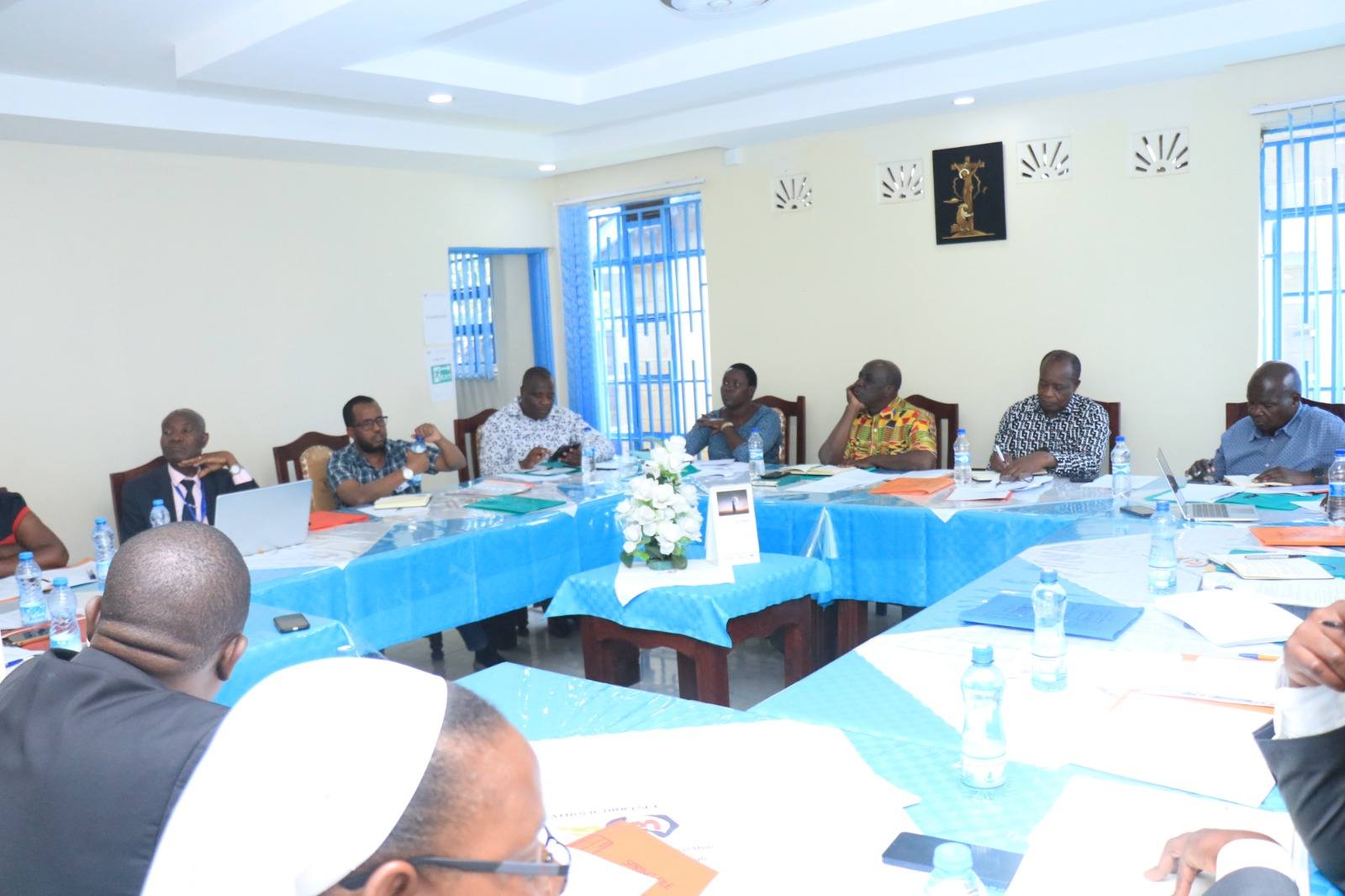

Seme Member of
Parliament Hon. (Dr.) James Nyikal has cautioned the Ministry of Health and
Social Health Authority (SHA) against shutting down health facilities over
administrative or management lapses, warning that such actions punish patients
instead of those responsible.
Dr. Nyikal, who
chairs the National Assembly Committee on Health, said the government should
focus on holding individuals accountable for wrongdoing rather than closing
hospitals that serve thousands of Kenyans.
“It is better to
identify where the faults lie and take action against those responsible, rather
than shutting down facilities. When a hospital is closed, it is not the
culprits who suffer but the patients who need services. Our position is clear:
deal firmly with those who cause problems, but keep the facilities open and
serving the people,” Nyikal said.
He spoke during a
fact-finding visit to St. Mary's Mission Hospital in Mumias, Kakamega County,
where he and other committee members assessed the operations and uptake of the
Social Health Authority (SHA), which manages three funds aimed at transforming healthcare
delivery in the country.
These funds are the
Primary Healthcare Fund (PHF), the Social Health Insurance Fund (SHIF), and the
Emergency, Chronic & Critical Illness Fund (ECCIF).
The Seme legislator
noted that the ongoing challenges with the new Social Health Authority (SHA)
system have left many institutions, including faith-based hospitals, grappling
with delayed claims and operational disruptions.
He argued that while
reforms in the health sector are necessary, they must not come at the expense
of access to care.
Nyikal, a former
Director of Medical Services, emphasised that facilities, whether public, private, or faith-based, are crucial in delivering healthcare to
Kenyans and must remain functional at all times.
He called on the
Ministry to urgently address the teething problems within SHA to restore confidence
among providers and patients.
“If there is a
problem of corruption in this country, it is widespread. Patients, caretakers,
and officers alike can be involved in fraudulent activities. Therefore, if the
minister has identified individuals who have crowded the system, it is
commendable that action is being taken against them, especially as their names
have already been submitted to the DCI,” he stated.
He added:
“We would say that
the first step should be to deal with the people who are actually culpable and
get hospitals functioning properly, because if this is not done, the public
will continue to suffer,”
He expressed concern
that some health facilities are facing challenges, with some having to shut
their doors due to non-reimbursement, others on the verge of collapse, and some
struggling financially to provide services to patients.
He cited St. Mary's
Mission Hospital in Mumias, Kakamega County, which, according to him, is
currently closed not because of any wrongdoing, but due to changes in the
systems.
“This health
facility was not implicated in any fraud, yet the new systems have disrupted
its operations. Our message is clear: let the minister continue his hard work
to restore functionality and ensure that those involved in wrongdoing face the
law,” he emphasized.
Lurambi MP Hon.
Titus Khamala, who is a member of the committee urged the State Health
Authority (SHA) to protect and support faith-based health facilities,
emphasizing their critical role in serving communities.
“This is my clarion
call: the SHA should be the one killing faith-based health facilities. These
facilities were there and they were working well,” Khamala said.
He stressed that as
lawmakers engage and visit various health facilities nationwide, it is crucial
to ensure that the SHA works for public, private, and faith-based institutions
alike.
According to the MP,
faith-based facilities were established as not-for-profit institutions to
support communities, particularly the most vulnerable.
“When such a
hospital shuts down, it represents a significant loss to both the community and
society as a whole,” he added.
Khamala also
criticised the manner in which the old National Health Insurance Fund (NHIF)
system was phased out, leaving hospitals stranded with unpaid arrears and no
clear points of contact.
They likened SHA to
“a new wife in the home” whose behaviour still needs to be understood, warning
that overreliance on automated systems without human support was locking out
patients.
“When you look at
SHA, it is a new system…like a new wife in a home; you have to learn its
character,” Khamala said.
He emphasised that
the automated processes have left several facilities “stranded,” with staff
unsure whom to contact after former NHIF offices were closed.
The MP cautioned
that relying solely on automated methods without functional support officers
risks leaving patients and facilities at a dead end.
“Are we yet at a
stage where you speak to a computer, it says no, and you have nobody else to
talk to?” he asked.
Khamala called for a
review of the system to ensure it serves health facilities effectively,
stressing the need for accessible human support alongside automation.



![[PHOTOS] China holds massive parade to mark 80th anniversary of WWII](/_next/image?url=https%3A%2F%2Fcdn.radioafrica.digital%2Fimage%2F2025%2F09%2Fbd5dfa7a-3a06-486e-b6b0-6b032c0ffc73.jpg&w=3840&q=100)








